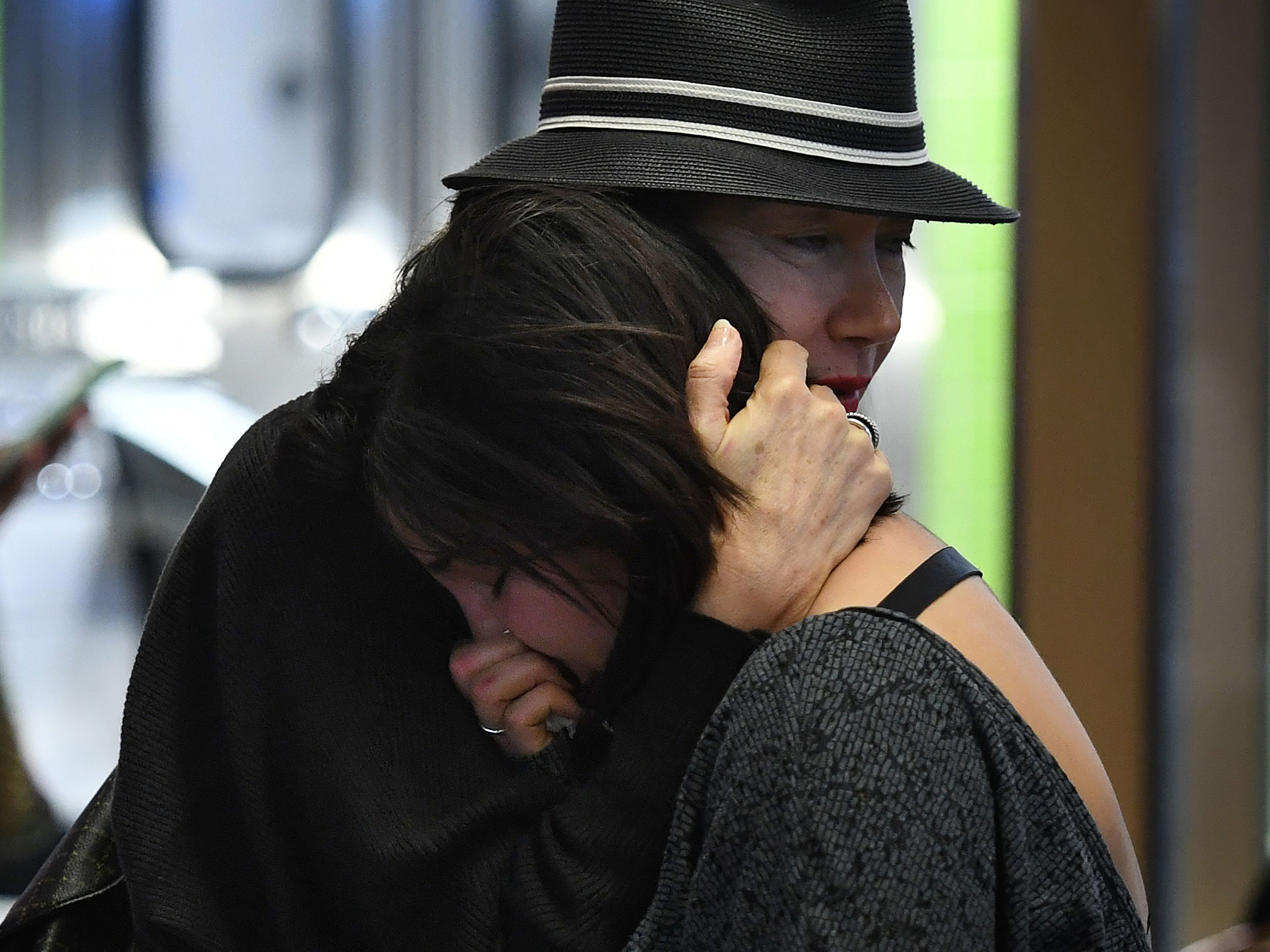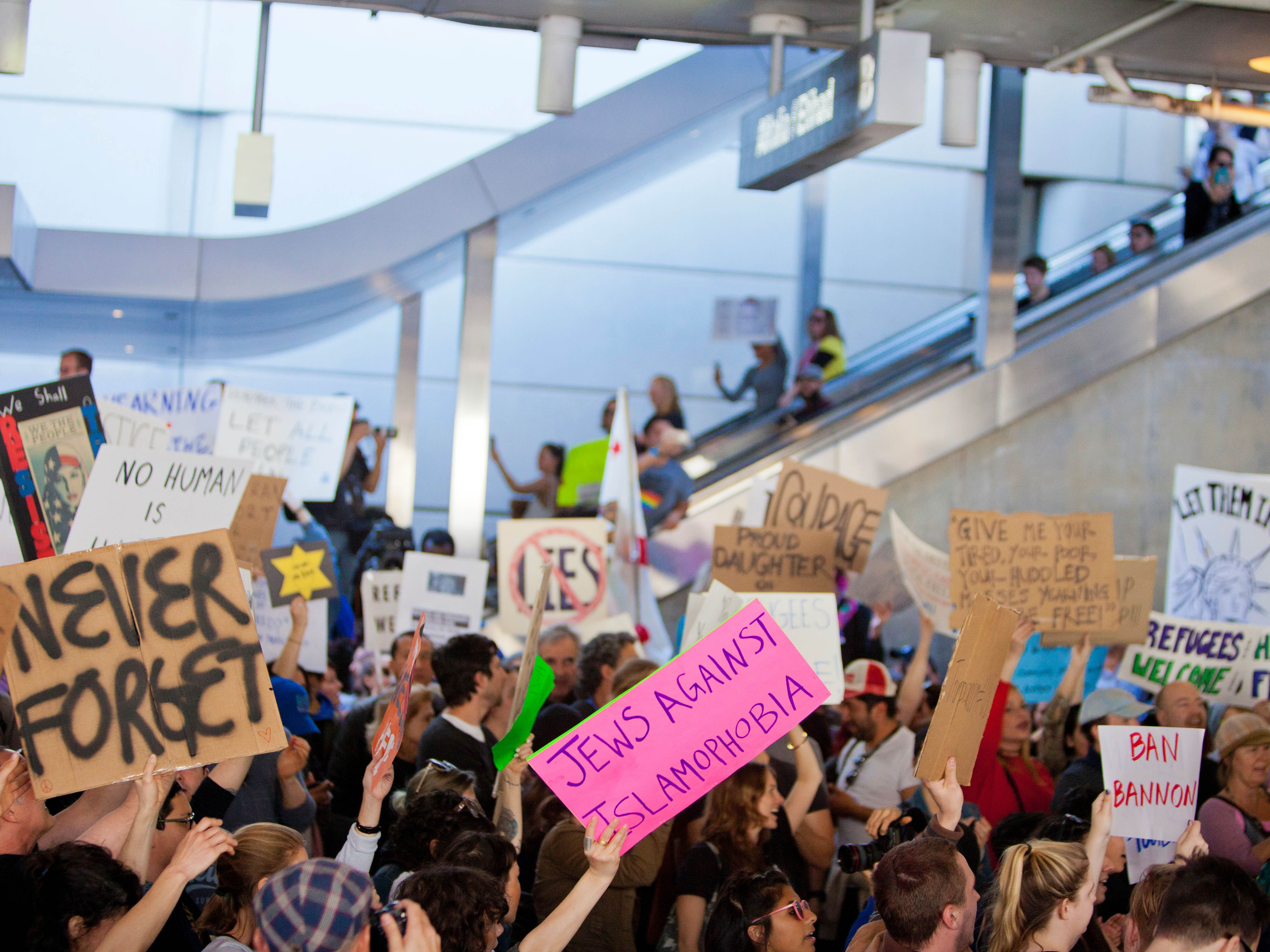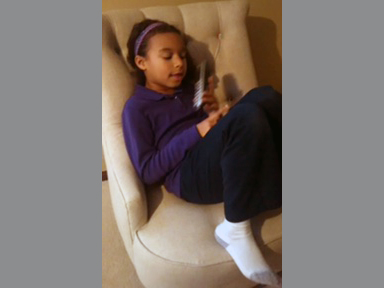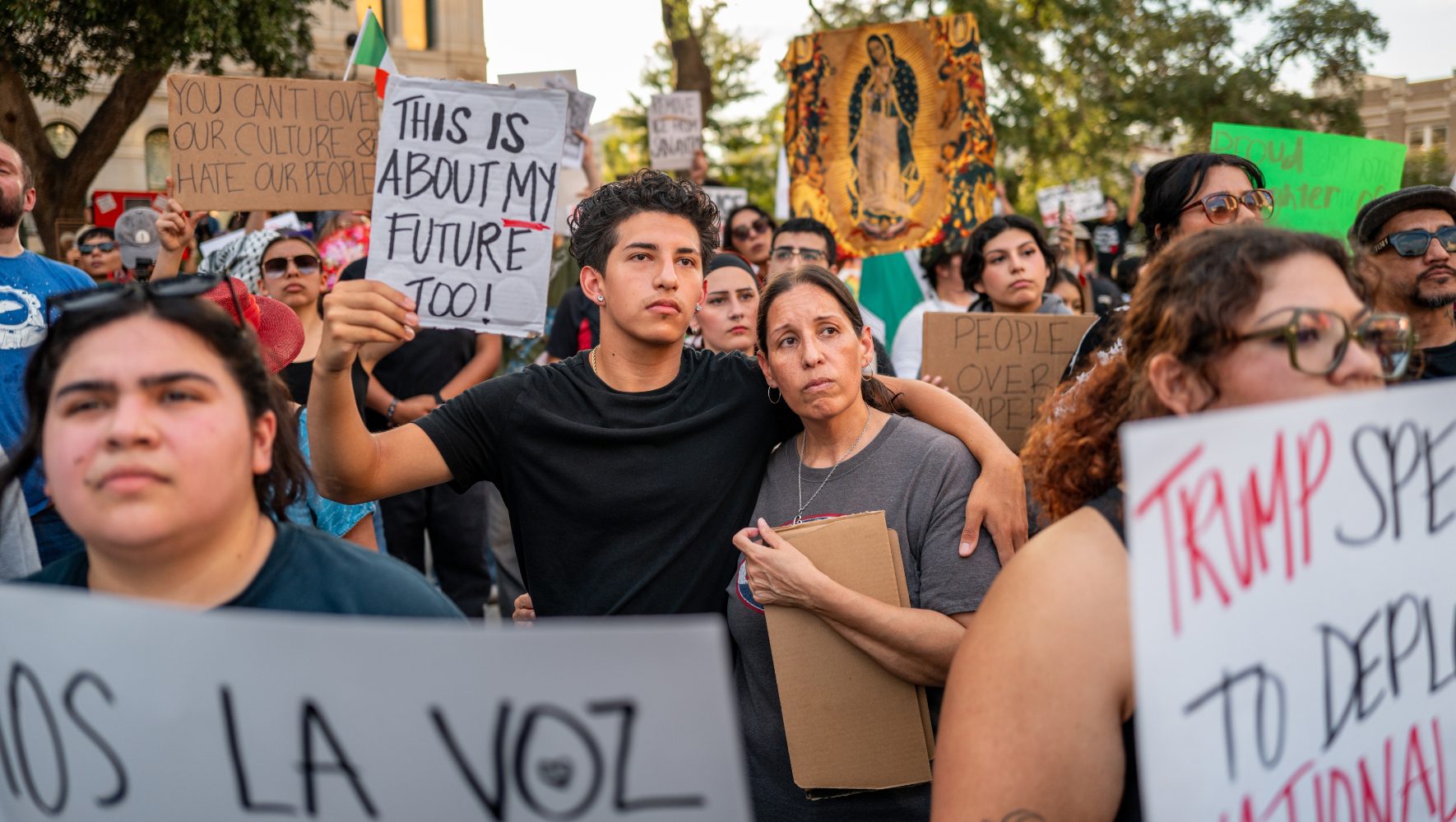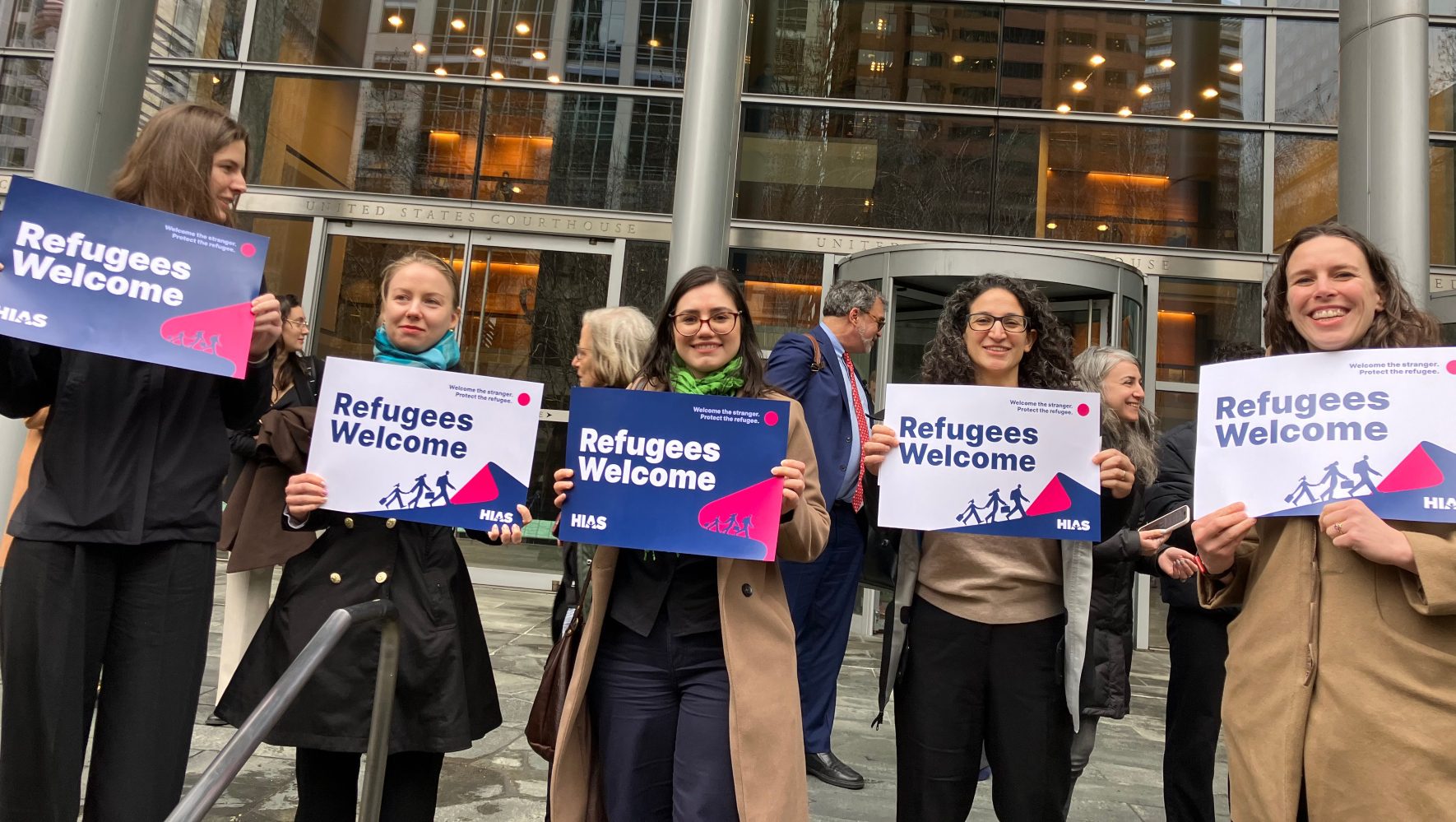Refugee Ban's Devastating Impact
By Rachel Nusbaum, HIAS.org
Feb 01, 2017
"Can you please tell Mr. Trump that I have two sisters that are supposed to come here next month and they can't come if he signs the ban?” asked seven-year-old Sierra, of Grand Rapids, Michigan.
“Sierra was eagerly awaiting the arrival of two new sisters (age 10 and 12) through Bethany Christian Services' refugee foster care program. She has been very upset about the ban and decided that she wanted to call the offices of both of our senators and house representative to talk to them about this ban,” her mom said.
“Can you please tell him that he doesn't have to be scared of refugees because they are just people like us and they need a safe place to live just like we do?” Sierra added. “Please make sure you tell him, because it's really important."
Click here to send a message to President Trump
On January 27, President Trump issued an executive order that would bar all refugee resettlement for four months, and halt resettlement of Syrian refugees indefinitely. Refugees who, after undergoing the often years-long vetting process and had finally been approved by the U.S. government, suddenly found themselves caught up in the unfolding chaos. This included many individuals seeking to reunite with family members already here. Unsuspecting individuals and families were pulled off planes and rerouted, or even detained at U.S. airports despite the fact that they were travelling legally and at the invitation of the U.S. government.
The heartbreaking impacts of this ban are far-reaching, and far from temporary.
More than 30 children who were slated to be welcomed by the Niagara Falls School District in Western New York will no longer be coming to the United States. Nor will their parents. As WGRZ has reported, “they were already fully vetted and approved to move here from countries like Sudan, Somalia, Iraq, Iran, and Afghanistan. Now, they aren't coming.” Marlene Schillinger, CEO of Jewish Family Service of Buffalo & Erie County, HIAS’ resettlement partner in the area, told the station, “we're talking about people who have no place to go, again. It's a tragedy."
A small community in Hamden, Connecticut was devastated to learn that the family of Syrian refugees they were preparing to welcome—including a teenage girl and her 78-year-old grandmother—would no longer be arriving on February 7, as expected. The community had partnered with a local resettlement agency and volunteered to help welcome this particular family of three and, in the words of one volunteer, “we were beyond excited.” The family was meant to be reunited with family members living in the New Haven area—a reunion which is now postponed indefinitely.
Also trapped by the surprise order were two HIAS clients, a Jewish Iranian man in his late 20s and his middle-aged mother, who have been seeking asylum in the U.S. in order to reunite with the woman’s two daughters who already live in the United States. They had been waiting for a decision on their asylum application for over a year, as HIAS President and CEO Mark Hetfield recently told JTA.
It was one of many family reunions foiled by the action.
Fadi Kassar was expecting to be reunited with his wife and two young daughters after more than two years apart. They were halfway to the states before being turned around when they attempted to board a connecting flight in Kiev. The family is Syrian, and therefore subject to an indefinite ban. “Every father wants to see his kids,” Fadi Kassar told NBC Connecticut. “Now they are back in Jordan. They don’t have luggage. They don’t have clothes to wear. They don’t have anything.”
“Many refugees have waited for years, even decades, to get a chance to come to the United States,” Melanie Nezer, vice president for policy and advocacy for HIAS, told Vox. It is it incredibly rare to make it through all of the checks and security hurdles to actually be accepted. (Nezer likened it to winning the lottery.) And, she says, “because our security clearances are so stringent, the most stringent in the world, all the clearances expire and they are only good for a certain period of time.”
Newly resettled refugees were not the only ones affected. Mayasah Witwit, an Iraqi refugee who lives in California with her husband and four children, was detained at LAX for several hours on Sunday. She had been in Turkey visiting her ailing father. “The time in limbo made her wonder whether she’d see her children again,” reported the LA Times.
Holding Mayasah Witwit at an airport, separated from her children and her breast cancer medication, did nothing to make us safer. Keeping Sierra from meeting her new sisters does not make us safer. The 30 school-age kids headed to Western New York posed no threat. Nor did the Syrian grandmother who a small community in Connecticut was preparing to welcome. Nor did the Jewish Iranian man and his mother, who were intercepted en route.
This disastrous action, which has caused so much pain to so many and yet has demonstrated no real benefit of any kind to the U.S., should be rescinded immediately. Many are urging exactly that.
Click here to learn more about how you can stand up and fight back for refugees, and don’t forget to follow HIAS on Facebook and Twitter.
